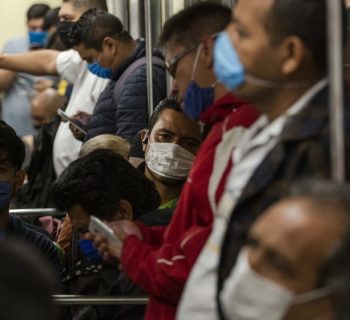By Lydia Wheeler and Luis Sanchez ~
The Hill ~ April 17, 2018
Justice Neil Gorsuch,
President Trump's first Supreme Court appointment, cast the deciding vote in a decision released Tuesday that sided with an immigrant fighting his deportation.
Gorsuch sided with court's four liberal justices in favor of the immigrant, James Garcia Dimaya, who the government sought to deport after his second first-degree burglary conviction in California.
The Justice Department argued his first-degree burglary conviction constituted a crime of violence, which is an aggravated felony that results in deportation under the Immigration and Nationality Act (INA).
However, the court said Tuesday that the law’s definition of a crime of violence is too vague.
In delivering the opinion of the court Justice Elena Kagan relied on a 2015 ruling in which the court said a similar clause in the Armed Career Criminal Act (ACCA) that defined a “violent felony” was unconstitutionally void for vagueness.
Kagan said that like the ACCA provision, the INA provision defining a crime of violence “requires a court to picture the kind of conduct that the crime involves in ‘the ordinary case,’ and to judge whether that abstraction’ presents some not-well-specified-yet-sufficiently large degree of risk."
As a result, she said INA’s provision produces, just as ACCA’s residual clause did, “more unpredictability and arbitrariness than the Due Process Clause tolerates.”
In a concurring opinion, Gorscuh said vague laws invite arbitrary power.
Gorsuch said that before the American Revolution, the crime of treason in English law was so capaciously construed that the mere expression of disfavored opinions could invite transportation or death.
"The founders cited the crown’s abuse of 'pretended' crimes like this as one of their reasons for revolution," he said, citing the Declaration of Independence.
"Today’s vague laws may not be as invidious, but they can invite the exercise of arbitrary power all the same — by leaving the people in the dark about what the law demands and allowing prosecutors and courts to make it up. The law before us today is such a law."
Gorsuch's choice to side with the liberal justices was expected after he questioned how the court could determine when a crime was violent if Congress had failed to do so during oral argument.
The federal law had been defended by the Justice Department under both the Obama and Trump administrations.
Chief Justice John Roberts wrote a dissenting opinion, which Justice Anthony Kennedy, Clarence Thomas and Samuel Alito joined. He said he would not hold that the INA’s definition of a crime of violence in unconstitutionally vague.
He said the ACCA clause directed the reader to consider whether the offender’s conduct presented a “potential risk” of injury.
“On the other hand," he said the INA provision, “asks about ‘risk’ alone, a familiar concept of everyday life. It therefore calls for a commonsense inquiry that does not compel a court to venture beyond the offense elements to consider contingent and remote possibilities.”
The case carried over from the court’s 2016 term when — because of Justice Antonin Scalia’s death and the Senate’s unwillingness to confirm a nominee for 14 months — the court deadlocked 4-4.
Dimya's attorney Josh Rosenkranz, who heads the Supreme Court and appellate practice at Orrick, Herrington & Sutcliffe, praised the court for its ruling.
“The Supreme Court delivered a resounding message today: You can’t banish a person from his home and family without clear lines, announced up front," he said.
"Congress cannot write a mushy standard that leaves it to unaccountable immigration officials and judges to make it up as they go along."
He said the decision is of enormous consequence, striking down a flawed law that applies in a vast range of criminal and immigration cases and which has resulted in many thousands of immigrants being deported for decades in violation of their due process rights.
Justice Department Spokesman Devin O’Malley, meanwhile, pushed for congressional action in the wake of the court’s ruling.
“The Justice Department believes that certain crimes committed by an illegal alien, visa holder, or an alien otherwise granted lawful status in the United States, should trigger their removal,” he said in a statement.
“Therefore, we call on Congress to close criminal alien loopholes to ensure that criminal aliens who commit those crimes – for example, burglary in many states, drug trafficking in Florida, and even sexual abuse of a minor in New Jersey – are not able to avoid the consequences that should come with breaking our nation’s laws.”
Source: Lydia Wheeler and Luis Sanchez ~
The Hill







